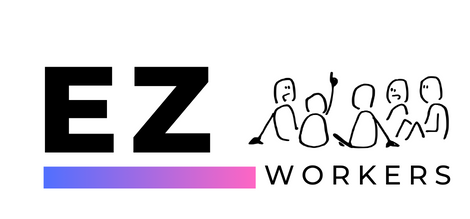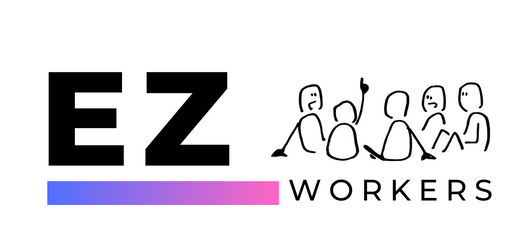
Pragmatic KR
Add a review FollowOverview
-
Founded Date June 21, 1969
-
Sectors Education, Science, & Research
-
Posted Jobs 0
-
Viewed 142
Company Details
- Company Logo 10
-
Company Website
-
Official Email Address shelia.tomaszewski57@1oh.claychoen.top
-
Company Head Office address 51 Rue Bonnet
-
Contact Number 55
Company Description
5 Killer Quora Answers To Pragmatic Kr
 What is Pragmatics?
What is Pragmatics?
Pragmatics is a word that is so frequent that you may think you know what it means. However, like many other words in the English language, it’s complicated.
People who are pragmatic tend to be practical and result-oriented rather than idealistic dreamers. They are aware that sometimes they will have to compromise on their ideals to be successful.
Definition
Pragmatics, which is a broad field of research with two main focuses, is a wide-ranging area. The first is to understand what a speaker’s intention is and is attempting to convey through an speech. The second is to study the impact of context on the meaning. Since the beginning of time, the study of pragmatics has been an integral part of human communication and language. The first journal dedicated to this subject was Pragmatics.
Pragmatism is a philosophical system that contests the orthodoxy of foundationalists. It claims that intuitions are always defined and influenced by descriptions and concepts and therefore we can’t have direct access to reality without filtering it through our beliefs and worldviews. According to pragmatists, such as Sellars, Rorty, Putnam, and Nelson Goodman, we can’t verify theories or worldviews by comparison with raw, unsullied sensuous experience.
There are various types of pragmatics, ranging from the study speech acts to the theory of politeness. These areas of pragmatics were analyzed using a number of innovative concepts, including conversational implicature theory, politeness and speech acts. The study of pragmatics is becoming increasingly important as intelligent machines and augmented reality have allowed for more complex interactions with people.
Some pragmatists go higher than others. Some argue that correspondence theory is wrong and should be rejected. Others are more cautious and argue that the standard formulation is not a good one and is incomplete. For example, Schiller and Rorty belong to the former camp, while Peirce, James, and Dewey belong to the latter.
Scholars have analysed the history and development of pragmatics using bibliometric and scientometric indicators. These indicators enable the identification and analysis of the latest developments and trends in the area of pragmatics. For example the increasing importance of cognitive science in linguistic pragmatics. In addition, it is possible to identify the most influential researchers in the field by examining their citation records. The results of this analysis are presented below. Below are the most prominent scholars, their fields of expertise, as well as the number of citations.
Examples
Pragmatics is a complex and broad field of study. It covers a variety of aspects of human communication, including inferences of logical significance based on communication and the semiotic aspects of non-verbal communication. It is also linked to other disciplines, like sociology, anthropology, psychology and the study of linguistics. In the latter half of the 20th century, pragmatics grew into an interdisciplinary field, with the influence of anthropological discourse analysis, cognitive-behavioural psychology and linguists.
There are a variety of pragmatics. These include linguistic and the clinical pragmatics. The former is focused on the use of language and the context in which it is used to make utterances, while the latter is focused on the interaction between patients and clinicians. Clinical pragmatics is a multidisciplinary field that has seen rapid growth over the past few decades due to advancements in health care and more information about speech disorders.
The word pragmatic is derived from the Latin pragma which means “to take up”. John Locke was the first to use this term to describe his philosophy. Later, it was adopted by Charles Sanders Peirce, who called his philosophy pragmatism. Peirce created his philosophy as a reaction against analytic theories that was unconvincing to him.
Peirce’s pragmatism is a philosophy that spans a range of disciplines such as mathematics, biology and philosophy. It also influenced ideas of other philosophy, such as Dewey, Mead and those who were involved in social work or women’s rights.
The philosophies of pragmatism may be varied however they all share the same element: a belief that the truth is ultimately relative to the individual’s experiences and perception. In the case of linguistic pragmatism, this principle applies to vocabulary, grammar pronunciation, and other aspects of the language.
The movement of pragmatism has been influential in the fields of anthropology, sociolinguistics, and speech language pathology. These disciplines have contributed towards the development of a pragmatic theory of language, which has expanded in the course of time to encompass a variety of aspects of communication. The number of articles published in the field of pragmatics continues to grow. The development of this field has been aided by the availability of computer programs that can analyze the use of language and aid in understanding the dynamic of human communication.
Pronunciation
Pragmatics is the branch of philosophy of language studies that studies the connection between thought and action. Its goals include understanding what people mean when they speak and the contexts they are used in. Fields of study that are applied to public administration, political science, leadership studies and international relations frequently incorporate the principles of pragmatics.
The word”pragmatic” comes from the Latin expression that means “to be practical.” Originally, it was used in a grammatical sense, to denote a method of analyzing sentences or words to determine their efficacy and effectiveness. It has also been used in recent times to describe a general decision-making approach that emphasizes the practical aspect of things.
The pragmatic philosophers are characterized by their ability to weigh the pros and cons and their willingness to sacrifice or compromise their own opinions to reach a goal. They are objective and adopt a logical rational approach to making decisions.
Classical pragmatists include William James and John Dewey, both of whom are regarded as the founders of American philosophy. They were influenced in the movement by Charles S. Peirce, who renamed his own doctrine pragmatics to differentiate it from the opinions of James and Dewey. Richard Rorty and Susan Haack are contemporary philosophers who have developed an analytical model that is complex.
Other schools of thought have some similarities with pragmatism, including logical positivism, conventional language philosophy and behaviorism in sociology and psychology. Logical positivism uses a verification of meaning criterion that is designed to eliminate metaphysics from the philosophical landscape, but it doesn’t emphasize the importance of action in the same way as pragmatism does.
Pragmatics plays a major role in the study of natural language and is a vital aspect of business communication. Leaders must be able to analyze situations and adapt their communications to maximize the success of their meetings negotiations, sales pitches and negotiations. Listening to native speakers is crucial to improve this skill. You can also practice pronunciation using tools like Promova.
Usage
A person who is pragmatic is one who is more concerned about facts than with ideals. They are capable of assessing what is realistically feasible and how it could affect others. This kind of person is often compared with an idealist, whose ideas are more highly-valued and based on the principles of. A politician, for example may describe himself as a pragmatist by saying that he’s willing and open to the views of other sides.
It is important that children develop pragmatic language skills, especially when they interact with their family, teachers and peers. These skills allow them to express themselves, participate in games, and resolve disagreements. They also enable them to communicate in more complex ways, such as using metaphors and sarcasm. Children acquire these skills at an early age but they develop throughout childhood and adolescence as they interact with their surroundings.
Many people mistakenly consider pragmatism in terms of philosophy. However it is actually defined as using practical consequences to make decisions. It is also a term for a philosophy that emphasizes the use of this approach.
The term”pragmatic” is employed in a variety of areas including law and education. In linguistics, it is used to describe the socially-based communication features that are that are rooted in culture and context. It is distinct from other aspects of language such as syntax, phonology and semantics, which are less dependent on social context.
To teach and assess these aspects effectively, it is crucial to understand how they impact the speech and language. The use of pragmatic markers is among the most common aspects in pragmatic language. PMs are lexical elements that define the meaning of the communication and how the interlocutor is to interpret it. They are a part of you know you know, so, and okay. They are used in high frequency and at an unconscious level. PMs serve textual, interpersonal and metapragmatic purposes (Gordon 2007).
The study of pragmatics has a long history and is a popular area of study. The research is multidisciplinary, and the most commonly-cited journals include the Journal of Pragmatics and Intercultural Pragmatics. VOSviewer has created a visualisation of the network of these journals, showing the most frequently cited authors and topics that are related to pragmatic language development. The colour code indicates what type of topic is being discussed: yellow is Pragmatic KR competency, blue is theory and mind, and green is neuropragmatics, clinical and.



